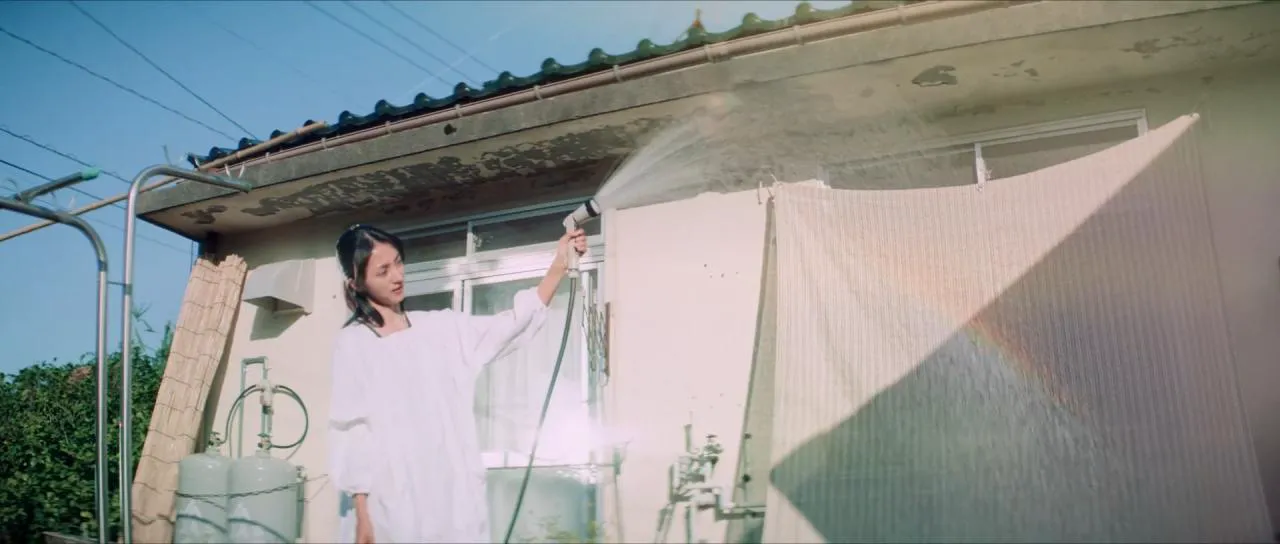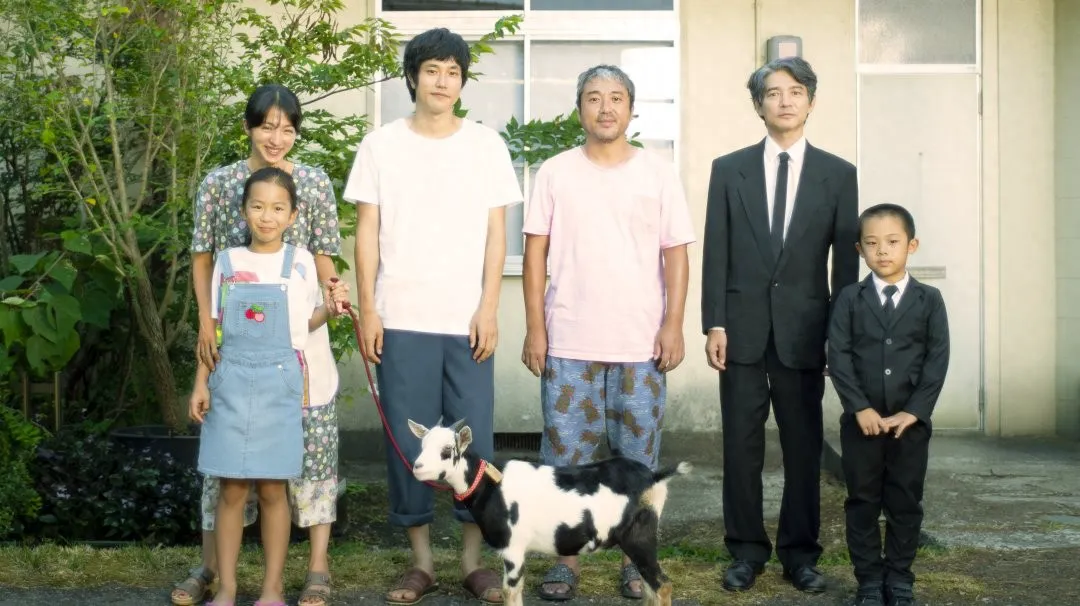
“During typhoon season, the river overflows its banks, carrying us along in its relentless current. In these extraordinary moments, we are swept away, struggling to stay afloat.”
Life Beyond the Folds of the Past
Embracing Fleeting Moments of the Future
Life, death, illusion, and joy are the three major themes that run through the film. The simple story structure, the gentle narrative pace, combined with the unique Japanese healing style, often gave me the illusion of stepping into a summer village while watching the film.
Authentic and full characters make the whole film simple but not crude, heavy but not depressing, and single but not thin. Each character lives earnestly and upwardly, either optimistically or freely. And the film, under the constantly changing colors and light, accompanies the sound of cicadas to carefully write a summer fairy tale that belongs exclusively to adults.
A Simple Community
Inhabited by “Unordinary” Tenants
A criminal record is like an invisible shackle, allowing Yamada to walk alone on the edge of society. For him, getting a job at a squid processing plant is already rare. Although it is boring, it is good not to talk to people, which is also in line with his withdrawn personality. Coupled with the president’s frequent encouragement, Yamada gradually adapts to life back in society.
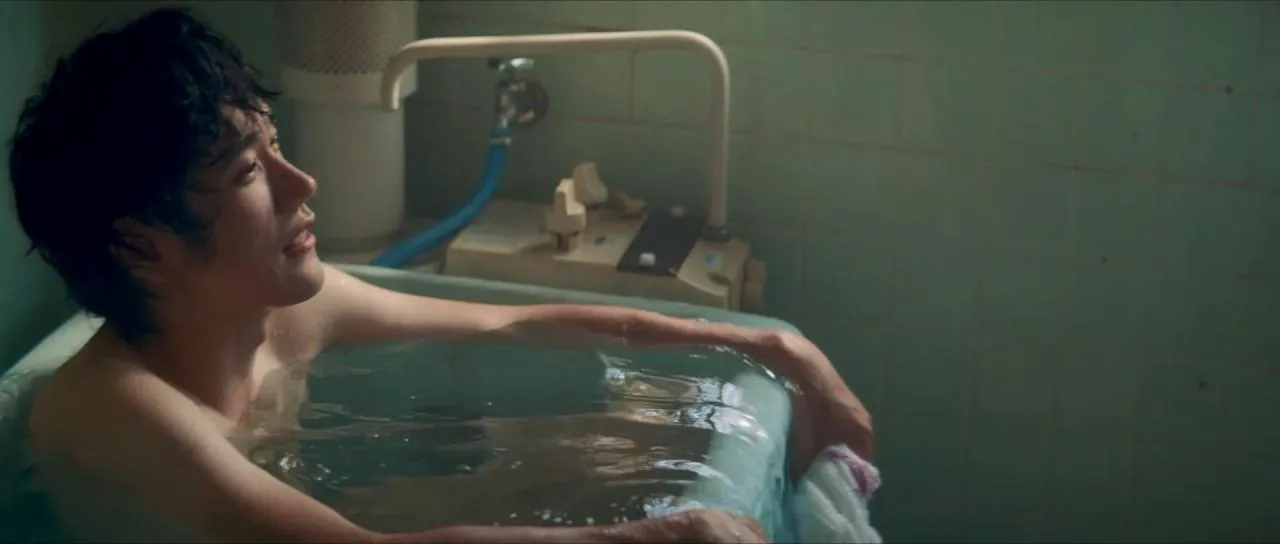
With the president’s introduction, Yamada has his own place to live. The community is very simple, and even the signboard symbolizing the door is just a yellow cardboard with ⌈Fleeting Collection Apartment⌋ written in black pen. The room is not big, but it can be regarded as clean and tidy, and although the bathtub is small, it can bring a moment of relaxation under the scorching sun. But it is in such a simple community that a group of “unordinary” tenants live.
The neighbor, a strange uncle who claims to be a minimalist, lives a poor but self-sufficient life. The philosophy of life he believes in is that good luck can be brought by shouting ⌈I have no money⌋ to the sky. The honest appearance and the blurred sense of boundaries, coupled with his optimistic attitude, make his image unique.
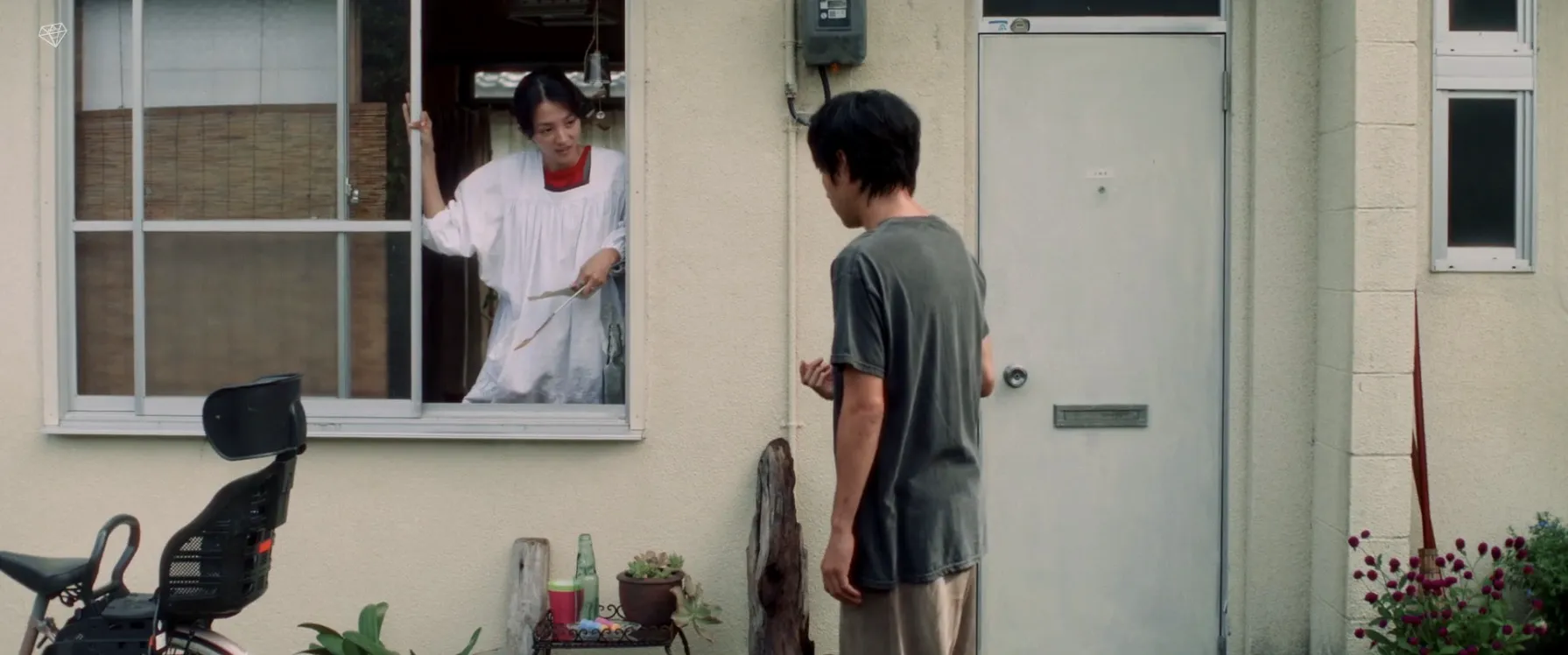
The father and son who sell graves everywhere are still firm despite hitting walls along the way. The meticulous dress and the unchanging rhetoric make this job funny and invisibly add a bit of joy. When walking on the road, the father accurately describes the scene of wanting to eat food with his mouth, which also reveals the sadness and embarrassment of the father and son.
The single landlady who lives alone with her daughter, often looks sad but also smiles in life. For tenants who pay the rent on time, she will give a candy as a tip. She also jokes about wanting to kick a pregnant woman when she sees one on the road.
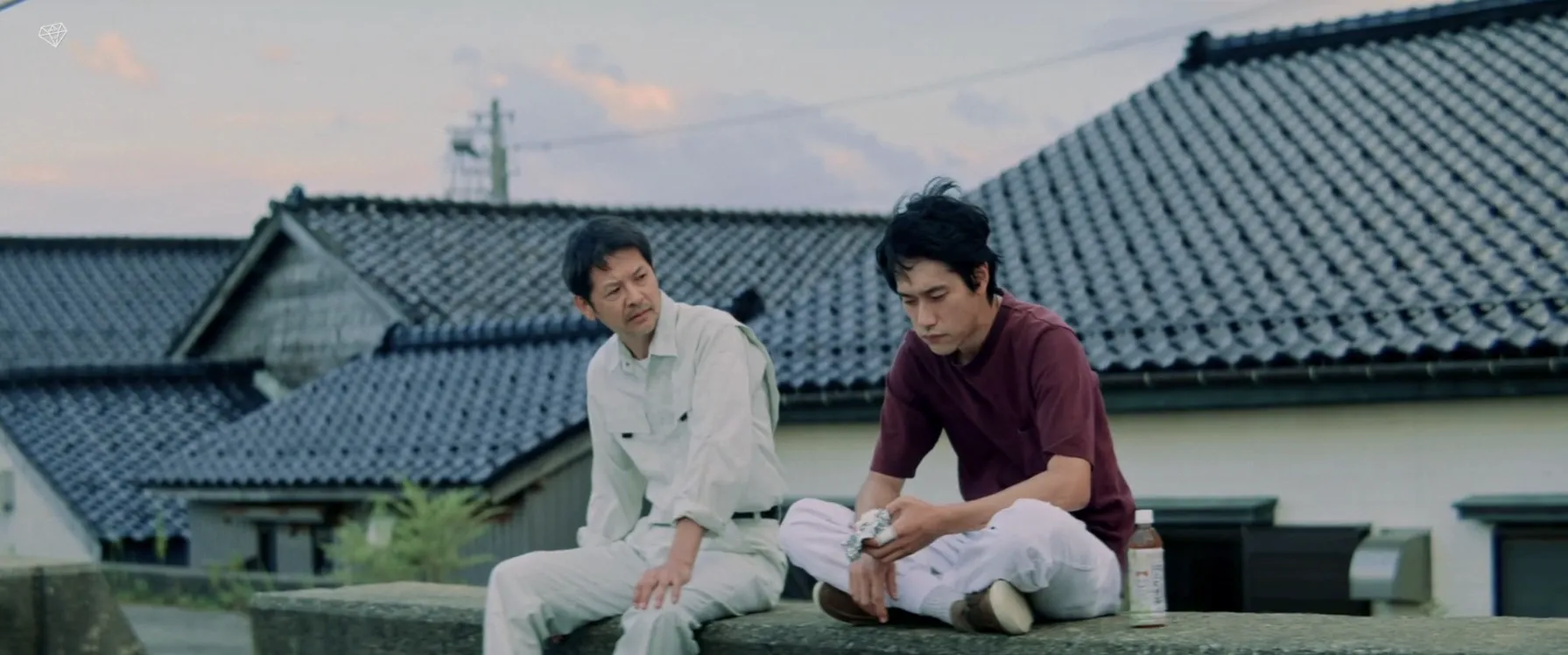
As marginalized characters in society, they each have secrets and live together in the riverside corner of the city. But it is such a group of people who are “abandoned” by society and “betrayed” by life, who connect with each other and establish relationships; fight against life and death together, and resist wind and rain together. Just like the strange uncle’s philosophy of life: “When you have nothing, you can bring good luck, but when life is in a slump, every moment of happiness can reach people’s hearts.”
The Overarching Themes
The slow-paced movie makes it easy to forget the real theme of the story, but the film’s timely “conflicts” can always pull me back to this major proposition about life at critical moments. If time is the mother proposition of life, then life and death, illusion and reality, and joys and sorrows are the necessary stops on this time train, and they are also well expressed in the film.
Survival is the Remembrance of the Deceased
Death is the Connection of the Living
Death is the main theme running through the whole film, and it is also one of the most important elements for establishing connections between characters. Each of them is an eyewitness to death and tries to live in their own way.
The giggling strange uncle has actually been deeply mired in the quagmire of losing his father in childhood and his son in middle age; the landlady whose husband has been dead for five years uses busyness as her last helper to resist missing him; the father and son who sell graves are just “death” walkers in black suits in the eyes of others; the pyrotechnician at the end of the film ignores his son’s objection and puts his wife’s ashes into the cannon, releasing the most gorgeous fireworks of his life.
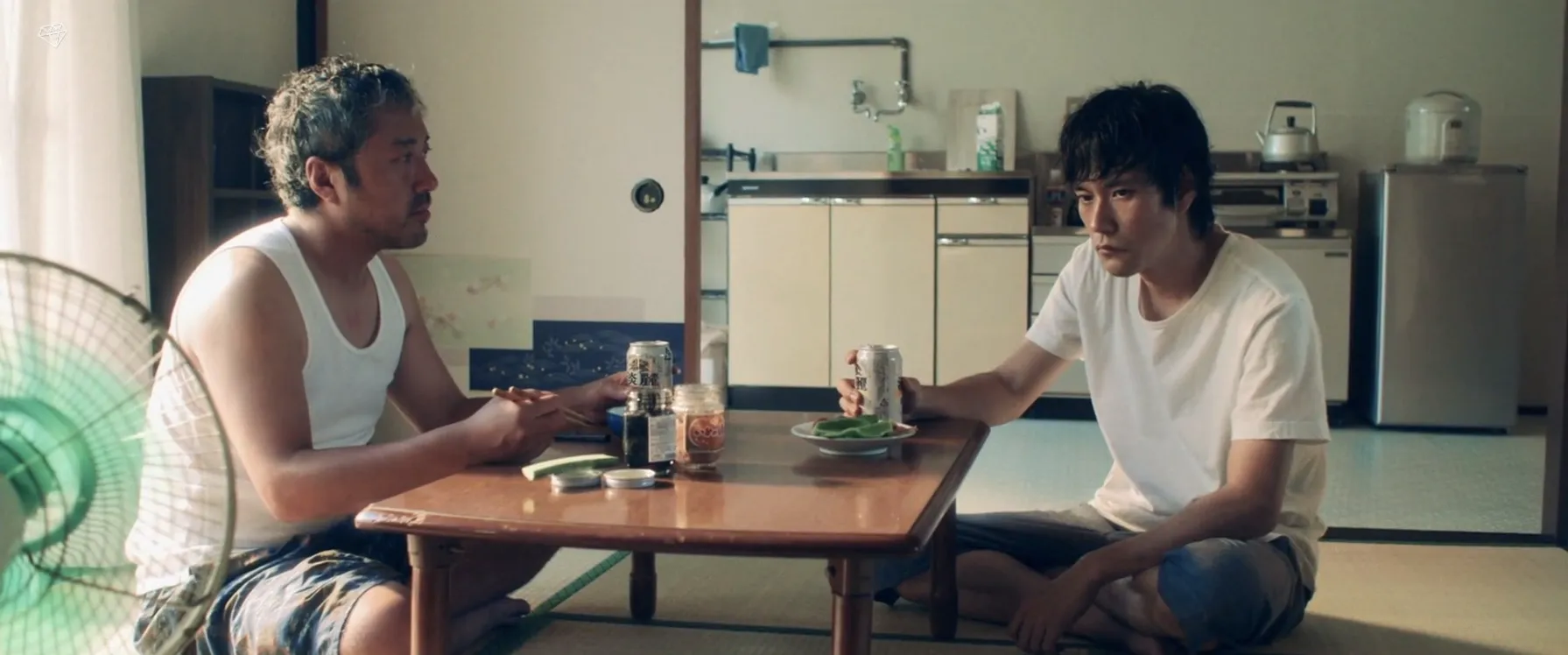
If death brings relief to the deceased, then perhaps all that is left to the living is endless longing and pain. For Yamada, his father’s death made it impossible for the father and son to reconcile, and the way his father died became a lifelong confusion for him.
People who die suddenly from illness will face the door, because at the moment when death comes, they want to chase life and seek a glimmer of life; and people who choose to commit suicide will face away from the door, because from the moment they decide to die, life becomes meaningless. But neither was his father’s choice, he died in the comfortable moment of taking a bath and drinking milk.
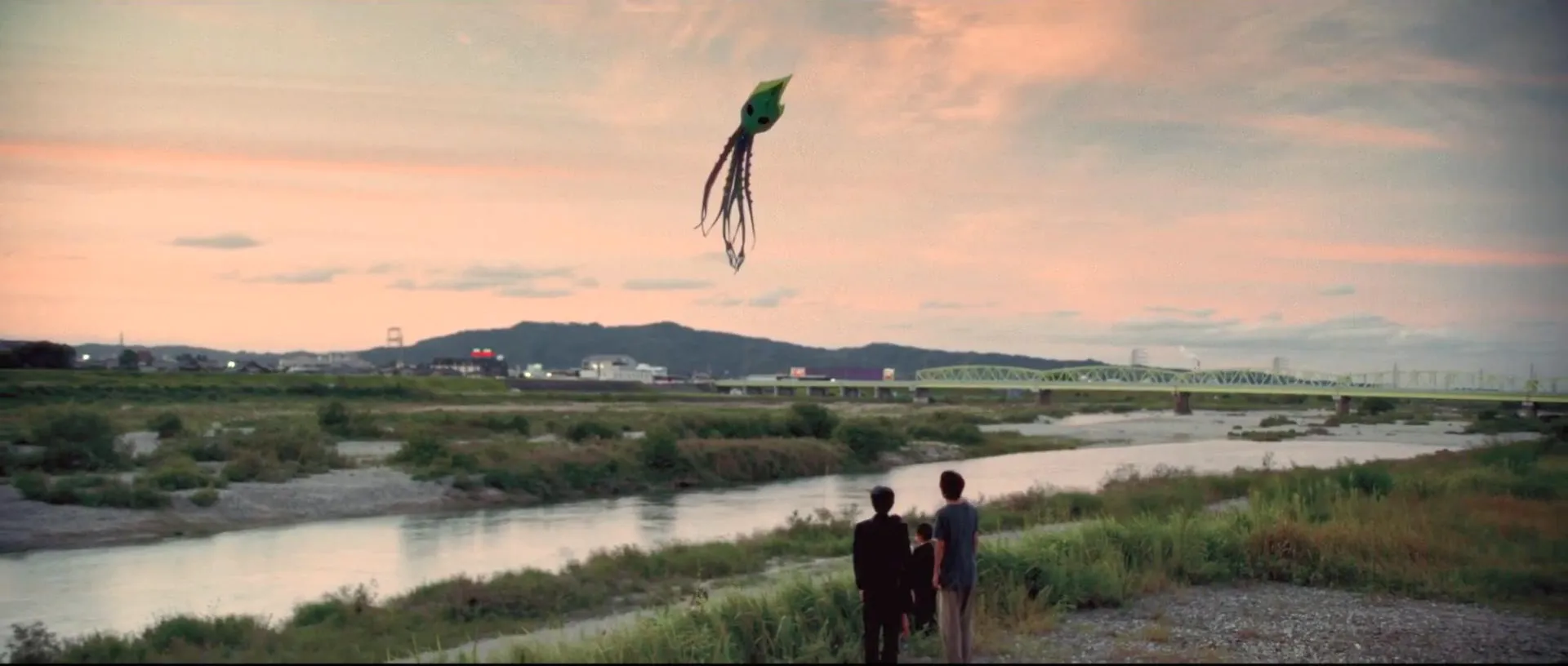
Perhaps we have never been able to face life and death calmly from the beginning, just like the strange uncle said when enjoying food: “Life needs to be accompanied by these small and trivial happinesses.” But when he saw the strange giant squid alien kite, he would also kneel down and cry, begging it to end this torment called survival.
Perhaps what death needs is never calmness and forgetting, but even if you can’t face every moment of life calmly, you can still live with the part that death gives you, this is the unbreakable fate connection between the living and the dead, and it is also the real clue that death gives to life.
Comedy is the Substrate of Tragedy
Tragedy is the Core of Comedy
If tragedy is the core of comedy, then comedy must be an indispensable substrate of tragedy. The film deliberately adds many black humorous passages in the narrative, making the heavy topic light and touching in laughter.
The strange uncle will praise Yamada’s talent for steaming rice while freeloading, and will insist on eating another bowl despite the obstruction; he will open Yamada’s refrigerator and drink beer without permission after working; he will recite the multiplication table backwards clumsily because he is afraid when the power goes out; he will make vegetable insects when chatting with his childhood friends in the temple. The strange uncle may be Yamada’s “nightmare” when he first entered the community, but it is he who made Yamada smile again.
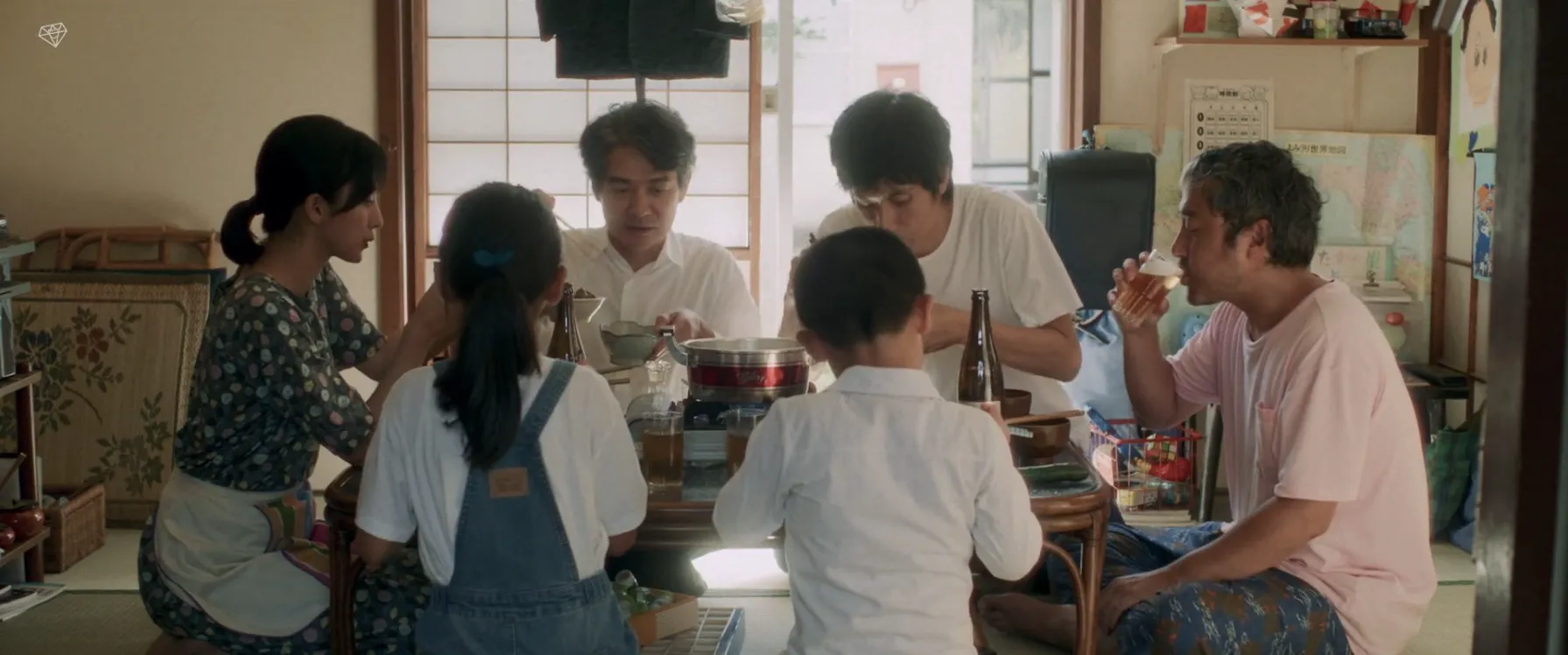
If I were to choose the most favorite passage in the film, then the tombstone father and son eating sukiyaki must be a strong candidate. The father and son who have not paid rent for half a year finally have income because of a high-priced tombstone that was accidentally sold. The two who are preparing to quietly share the joy make this sukiyaki everyone’s happiness because of the appearance of the strange uncle. It is very ironic that the owner of that high-end tombstone is just a puppy, maybe this is the unevenness and suffering of the real world. And their optimistic attitude, like Yamada’s shout of “I have no money on me”, is their greatest acceptance and tolerance of sadness.
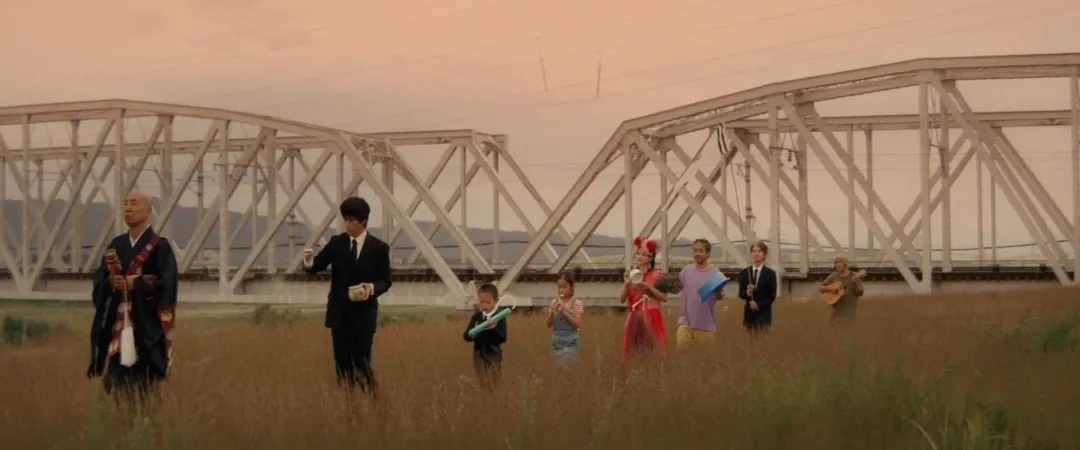
At the end of the film, everyone walked together on the riverside to hold a funeral for Yamada’s father, accompanied by the summer night’s dusk and evening breeze, accompanied by soothing and pleasant music, accompanied by various percussions that can and cannot be counted as instruments, the dead recklessly floated in the mundane world, and finally merged with this world.
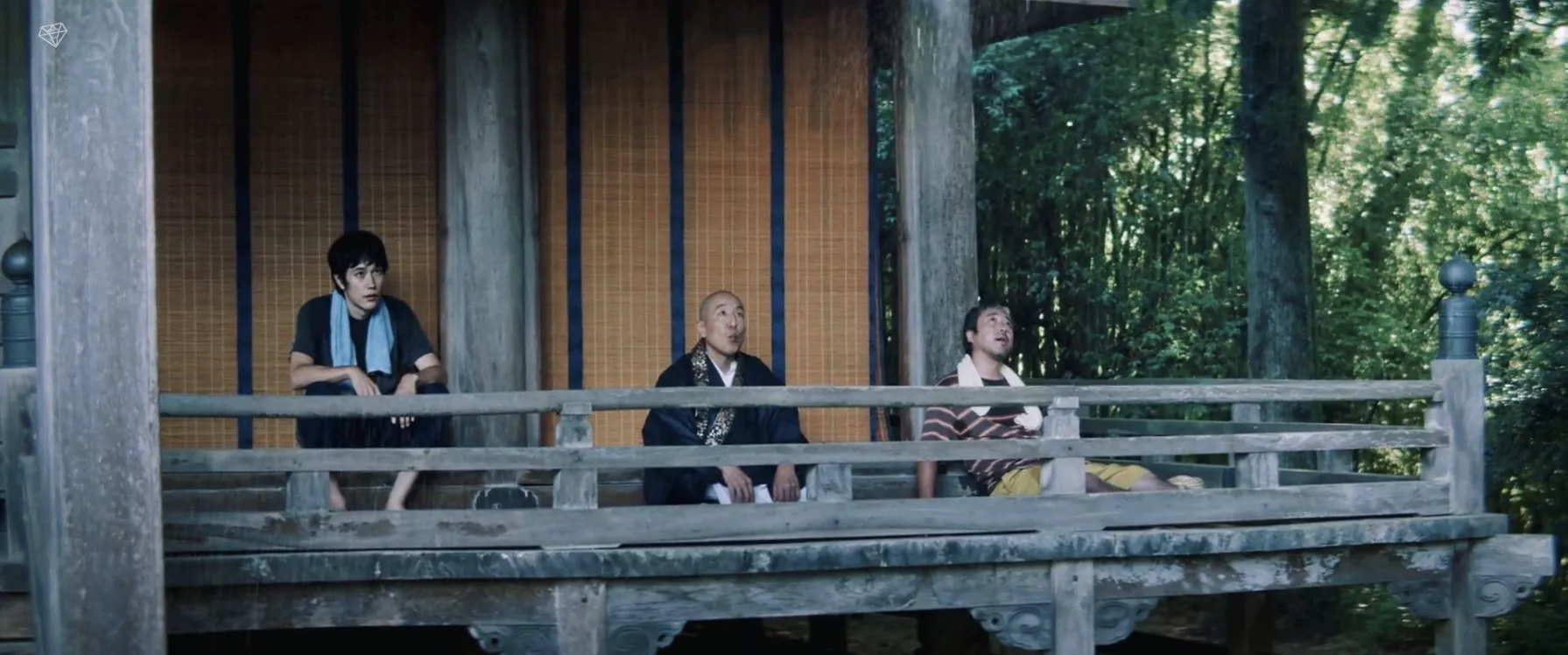
Perhaps life has no standard definition from the beginning. It is the spider silk story told by the strange uncle’s father, the goldfish floating in the sky in the mouth of the life hotline operator, the Bach played by the boy in the ruins, and the neighbors who have been dead for a long time but still love life.
The question that Yamada repeatedly mentioned, “Is life worth living?”, maybe the answer has already been buried in his heart. There is no one-size-fits-all solution to all problems, just as there is no one answer that can answer our long and complex life. We live in fleeting moments, looking for the happiness of life and exploring the value of life. But what we can grasp are just those insignificant trivial moments. And it is these moments that accompany us through the dark night, resist the pain, and walk towards the last fleeting moment of life with a smile.
“The folds of life can never be completely smoothed out, but every moment brings us closer to each other.”
